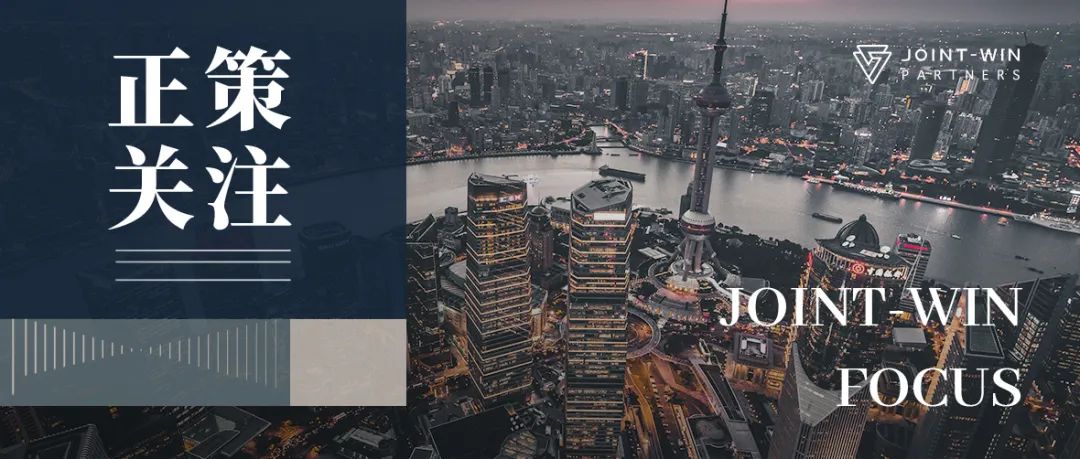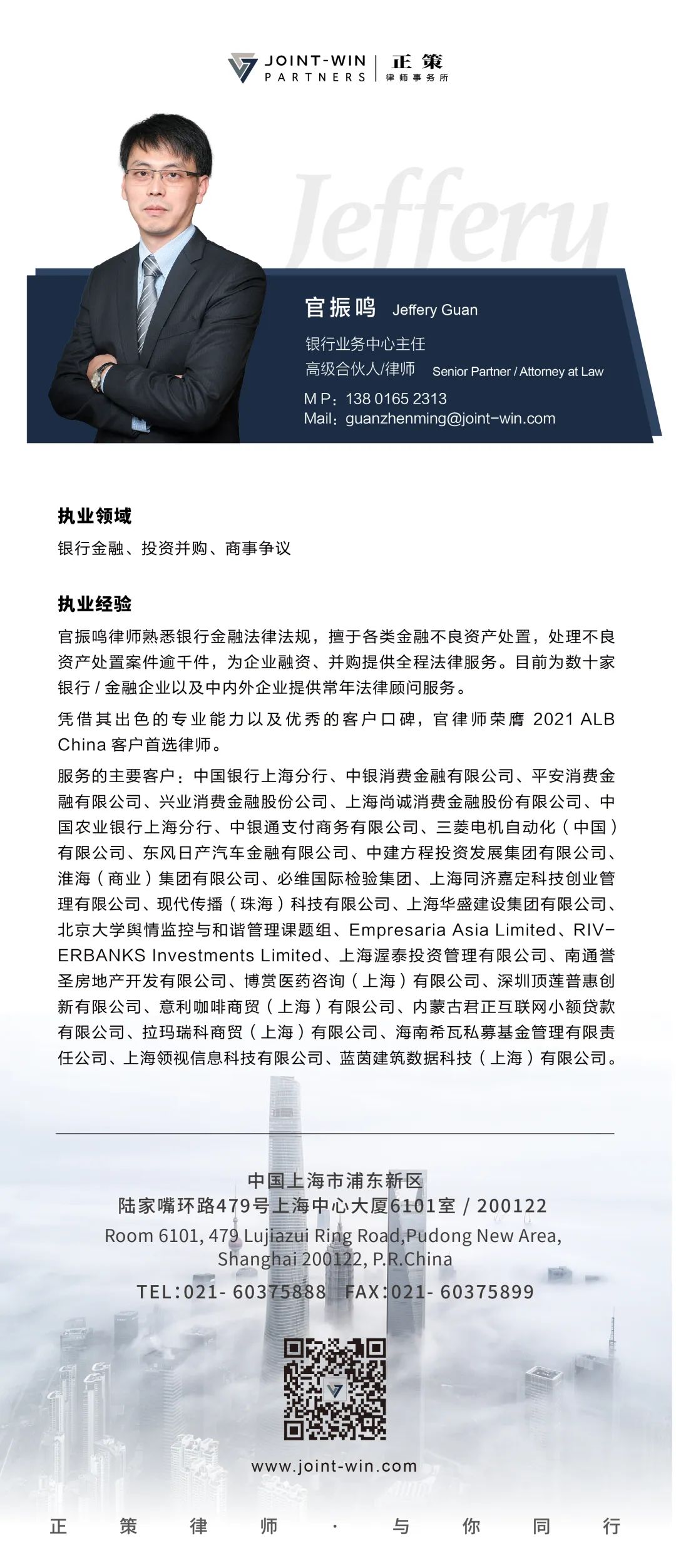正策新闻
正策关注|新规助力金融机构处理异常维权


近年来,金融领域异常维权频发,尤其是出现了一批以“代理维权”为名,实则以非法手段从消费者、金融机构处攫取不当利益的黑产机构。虽然该情况已引起各部门的关注,但目前尚无具体规定指导金融机构如何处理此种异常维权行为。为此,中国互联网金融协会组织制定《互联网金融从业机构应对异常维权指南》(下称《指南》),对有关互联网金融相关从业机构处理异常维权、维护自身合法权益具有重要意义,值得从业机构充分关注。
In recent years, there has been a surge in abnormal rights protection incidents in the financial sector, especially concerning organisations claiming to represent consumers’ rights but, in reality, extracting undue benefits from consumers and financial institutions through illicit means.
Although this situation has garnered attention from various authorities, there are no specific regulations guiding financial institutions on how to handle such abnormal rights protection activities.
To address this, the National Internet Finance Association of China (NIFA) has developed the Guidelines for Internet Finance Institutions to Deal with Abnormal Rights Protection. The guidelines are important for internet finance institutions in handling abnormal rights protection and safeguarding their own legitimate interests.

定义
The definition
《指南》将异常维权定义为通过各种不正当手段向从业机构施压以牟取不当利益的维权活动或行为。基于严重程度,《指南》将其分为一级异常维权和二级异常维权。一级异常维权行为系指严重违反相关法律法规或国家有关规定的维权,或严重损害消费者、从业机构合法权益的维权;二级异常维权行为系指违反相关法律法规或国家有关规定的维权,或有违社会公序良俗且损害消费者、从业机构合法权益的维权。
The guidelines define abnormal rights protection as activities or behaviours that exert pressure on institutions through various improper means to seek undue benefits. They are categorised into level 1 and level 2 abnormalities. Level 1 abnormalities refer to serious violations of relevant laws and regulations or national provisions, or actions severely harming the legitimate rights and interests of consumers or institutions.
Level 2 abnormalities involve violations of relevant laws and regulations or national provisions, or actions contrary to social order and morals, while harming the legitimate rights and interests of consumers and institutions.
应对策略
Response strategies
特定条件下可不予受理。《指南》明确,有关从业机构对于以下异常维权行为可不予受理:(1)维权事项不属于侵害消费者合法权益的行为;(2)无反映从业机构侵害维权人合法权益的事实、证据或线索材料;(3)维权人未提供真实身份或提供虚假身份;(4)维权事项已通过司法途径进行处理;(5)消费者已经接受从业机构提供的解决方案的情况下,维权人就同一事项再次维权;(6)维权人非消费者本人且拒不提供有效身份信息或者其他身份证明文件(或者有效机构设立文件)和授权委托书的;(7)法律法规、规章规定不予受理的其他情形。对于《指南》列举的可不予受理的异常维权行为,从业机构经过审查即可自行作出决定,这对有关从业机构降低投诉处理成本具有极大意义。
与中国互联网金融协会配合处理。中国互联网金融协会将依据《指南》,组织相关从业机构共同抵御异常维权的侵害,维护从业机构的正常运营,具体措施包括但不限于:设立应对异常维权的专门工作委员会、建立独立第三方评审机制及制定行业协同信息共享机制。
就从业机构而言,首先,从业机构应积极参与行业协同信息共享机制建设,及时报送异常维权及黑灰产活动相关信息;其次,从业机构应格外关注评审机制,发现疑似异常维权的,向中国互联网金融协会提出评审申请并提交相关材料,评审确认为异常维权的,从业机构应当按照《指南》进行处理。此外,从业机构可以将评审意见上报金融管理部门,必要时可请中国互联网金融协会协助解释说明。最后,对于网络不良金融维权信息,从业机构可以通过网络不良金融维权信息处置联合工作机制,提请网络平台处置。
与公安机关、人民检察院及人民法院交流配合。《指南》要求,从业机构发现涉嫌违法犯罪的线索时,应及时报告国家相关部门处理。近期司法实践中,已有判例将异常维权定性为犯罪,例如2024年5月15日,上海市虹口区人民法院公众号发布的文章,介绍了以下案例:缪某某因七千余元贷款逾期,被拍拍贷公司催收。唐某某持缪某某的电话卡、银行卡,冒充其身份接听拍拍贷公司的催收电话,并录音、代写投诉信,在由缪某某签字后,他们将投诉及录音材料寄送给上海市信访局等多家单位。迫于监管部门的监督,拍拍贷公司与唐某某进行调解协商。唐某某要求拍拍贷公司为撤回投诉赔偿四万元,且免除繆的贷款。拍拍贷公司迫于压力将钱款转入缪的账户并免除其贷款。最终,上海市虹口区人民法院经审理后判定包括缪某某、唐某某在内的四名被告人构成敲诈勒索罪。
该案揭示,公安机关、人民检察院及人民法院对异常维权可能构成敲诈勒索罪已达成共识,相关从业机构遇到异常维权应关注保留相应证据,并及时与公安等机关沟通,积极协助公安机关、金融管理部门和行业协会对相关案件的调查处理。
《指南》为有关从业机构处理异常维权提供了指引,有关从业机构应认真研读,坚决抵制通过各种不正当手段向从业机构施压以牟取不当利益的行为,切实保护消费者的合法权益。
Under specific conditions, non-acceptance is permissible. The guidelines explicitly state that institutions may refuse to address abnormal rights protection in the following situations:
Matters not constituting infringement of consumer rights;
Lack of evidence, facts or clues reflecting the institution’s infringement of the rights of the complainant;
Failure of the complainant to provide true identity or providing false identity;
Matters already handled through judicial channels;
Instances where consumers have accepted the institution’s proposed solutions, yet the complainant renews the complaint on the same matter;
Complainants other than the consumers themselves who refuse to provide valid identity information or other identity certification documents (or valid institutional establishment documents) and authorisation letters; and
Other situations not accepted under laws, regulations or rules.
For the listed abnormal rights protection activities in the guidelines where non-acceptance is permissible, institutions can make independent decisions after review, significantly reducing the cost of complaint handling for relevant institutions.
Collaboration with the NIFA. The NIFA will organise relevant institutions to jointly defend against abnormal rights protection in accordance with the guidelines, safeguarding the normal operation of institutions.
Specific measures include but are not limited to: establishing a specialised committee to address abnormal rights protection; establishing an independent third-party review mechanism; and formulating industry-wide information sharing mechanisms.
Institutions should first actively participate in the construction of industry-wide information sharing mechanisms and submit information related to abnormal rights protection and illicit activities in a timely fashion.
Second, institutions should pay special attention to the review mechanism. If suspected abnormal rights protection activity is detected, they should apply for a review with the NIFA and submit relevant materials.
If confirmed as abnormal rights protection, institutions should handle it in accordance with the guidelines. Additionally, institutions can report review opinions to financial regulatory authorities and, when necessary, seek explanations from the NIFA for assistance.
Finally, institutions can submit negative information related to financial rights protection on the internet to the joint work mechanism responsible for handling such cases, requesting that the network platform to address it.
Collaboration with public security, procuratorates and courts. The guidelines require institutions to promptly report to relevant national competent authorities when they discover suspected illegal activities. In recent judicial practice, there have been cases where abnormal rights protection has been characterised as criminal activity.
For instance, on 15 May 2024, an article published on the official WeChat account of the People’s Court of Hongkou District, Shanghai, highlighted this case: Miao, owing more than RMB7,000 (USD965) in loans to PPDF, faced debt collection efforts.
Tang, using Miao’s phone and bank cards, impersonated Miao to answer PPDF’s collection calls, recorded them, and drafted complaint letters. After Miao signed these documents, they were sent to various authorities, including the Shanghai Municipal Bureau of Letters and Calls.
Under regulatory pressure, PPDF mediated with Tang. Tang demanded RMB40,000 compensation to withdraw the complaint, and forgiveness of Miao’s loan. Under pressure, PPDF transferred the money to Miao’s account and waived the loan. Ultimately, the People’s Court of Hongkou District, Shanghai ruled that Miao, Tang, and two others were guilty of extortion. This case illustrates that the public security organs, procuratorates and courts have reached a consensus on categorising abnormal rights protection as potential extortion. Relevant industry practitioners encountering such situations should focus on preserving relevant evidence and promptly communicate with public security organs. They should actively assist the public security organs, financial regulatory authorities and industry associations in investigating and handling relevant cases.
The guidelines provide clear instructions for institutions on how to handle abnormal rights protection incidents. Institutions are urged to thoroughly study these guidelines and firmly resist any attempts to pressure them into yielding undue benefits through improper means, thereby safeguarding the legitimate rights of consumers.















